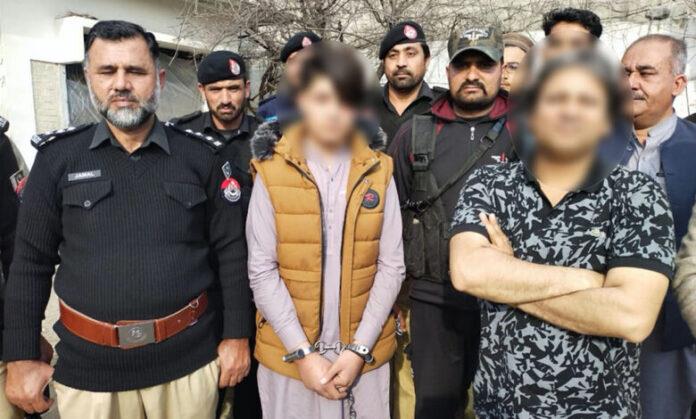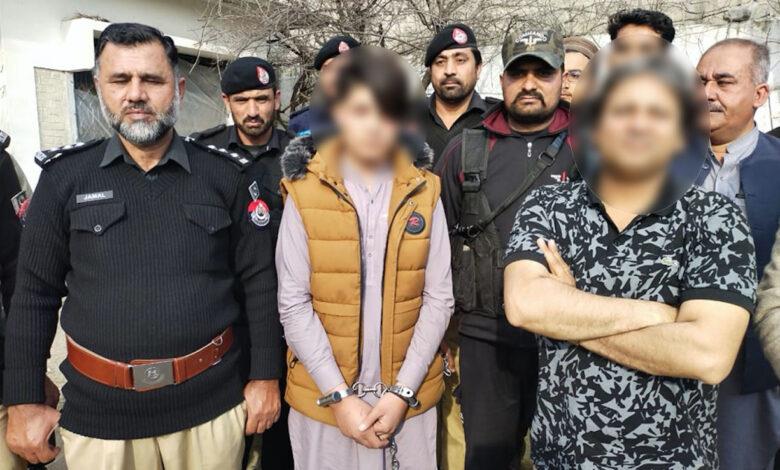(MENAFN- Tribal News Network) March 4, 2023facebook twitter whatsapp linkedin email

Rifaqatullah Rajjarwal
A senior lawyer moves Peshawar High Court to ban social media activists from interviewing the accused under police custody.
'Proving the accused guilty in the eyes of the public through social media, before the court decides, is an attempt to influence the court decision and a violation of human rights; states the petition.
While the journalists have welcomed this move, social media activists have condemned it, saying that it's a ban on freedom of expression.
Peshawar High Court lawyer Jabir khan, the petitioner, told TNN that he filed this writ petition on the basis of a violation of constitutional rights. He has made the authorities of the electronic media watchdog- PEMR-, Chief Secretary Khyber Pakhtunkhwa, Inspector General of Police Khyber Pakhtunkhwa, and Secretary Information Khyber Pakhtunkhwa party in this petition.
Jabir Khan, in his writ petition, argues that Article 3 of the Constitution guarantees protection to the accused from all kinds of exploitation, while according to Article 4; every citizen will be treated according to the law. Similarly, Article 10A of the Constitution also guarantees a fair trial and after the trial, the court will issue a verdict.
He says that Article 13 ensures that no person or institution can compel any accused person to testify against himself, while some people try to convince the accused person of their guilt.
“We are not against the freedom of expression at all, but it is a matter of implementing the constitution and the law. For example, under Article 19, no one's honor and morale can be harmed, but in these kinds of interviews, it seems that a criminal is being spoken to and not an accused one.”
He has requested the court to ask PEMRA to ban the interview of the accused, while the federal and provincial courts should take action on airing such interviews, media should not be given access to any type of accused or criminal, while the interviews of the accused should be declared unconstitutional and illegal.
Journalists, working in the mainstream media, support the writ petition and say that social media activists are often ignorant of journalistic norms, societal sensitivities, and the rights of the accused, which has a negative impact on professional journalists.
Khyber Pakhtunkhwa senior journalist and Khyber News TV's anchor, Shams Momand told TNN that interviewing in police custody amounts to influence the investigation and court proceedings because until the court decides, it already makes the accused a criminal in the eyes of the public and that is an illegal and unethical act.
“I think the social media activists who conduct the interviews may not even know that this is an illegal and unethical act. They also don't know what impact such interview will leave on the general society, and as well as on the lives of the accused after their acquittal by the court.” He argued.
On the question of freedom of expression being affected, Shams quoted a well-known saying, 'Your freedom ends where my nose begins', and said as long as you report within the confines of the constitution, law, and traditions, and if it's banned, it's illegal, but once you're cross the line, then that's the end of your freedom.
Shams Momand said that if this is about the freedom of expression, then cameras should be installed inside the courts and the entire proceedings telecasted live, but freedom of speech and writing has nothing to do with it.
He said that social media activists create problems for professional journalists as well, but unfortunately, few organizations give them access to places that are inaccessible even to journalists.
Recently the interview of the child in the custody of the police, who shot his father dead and injured his mother in the Lower Dir district, has caught the attention of social media users, who criticized that interview and raised the question that why was the child's face revealed.
Yousaf Jan Atmanzai, a social media activist who has millions of followers on Facebook and YouTube, told TNN that there is no doubt that social media is extremely arrogant, there is no system of checks and balances, but it by no means justifies imposing a ban on interviewing anyone using this platform.
He suggested that all the stakeholders should sit together and decide the rules and ensure their implementation.
Yousaf Jan said that he recently interviewed the child at a police station who killed his parents. We had given the message that parents should pay attention to the education of their children. He further said that if these problems are not highlighted, how will they be solved?
Yousaf insisted that he has worked as a journalist in radio, television, and newspapers for many years, while interviewing an accused, he follows the principle of journalism and takes equal care of his rights, and tries to make sure that the interview does not influence the investigation process.
It's worth mentioning that on September 17, 2021, the Department of Information and Public Relations of Khyber Pakhtunkhwa issued a statement that journalists or social media activists who do not have an official card would not be allowed to interview any government official.
Later on deputy commissioner, Mardan issued instructions to all the officials of federal and provincial institutions to not conduct interviews with the abovementioned journalists.
Apart from this, in January 2020, the police officials of Khyber Pakhtunkhwa ordered the police personnel to leave all WhatsApp groups to avoid controversy, after which a large number of officials left WhatsApp, but still, a large number of police personnel's numbers are available in different WhatsApp groups.
Hits: 1





















Comments
No comment